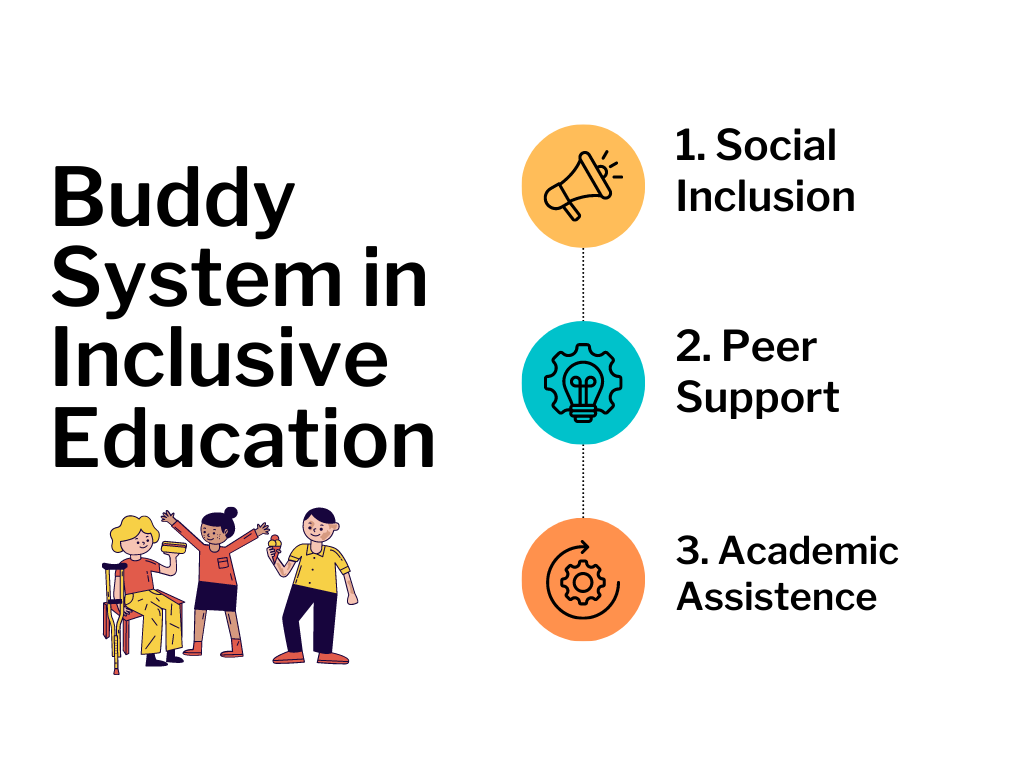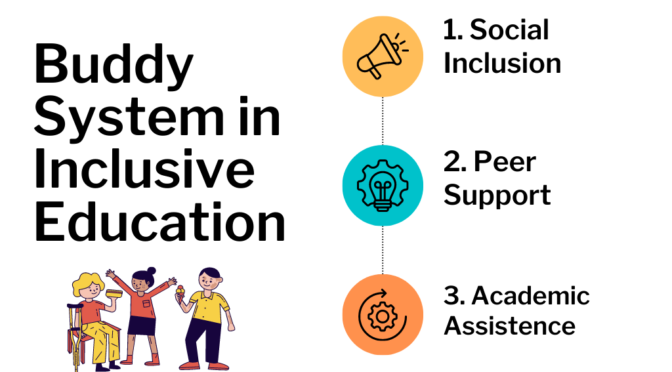The buddy system in inclusive education refers to a supportive practice where students with disabilities or special needs are paired with typically developing peers or “buddies” in an inclusive classroom setting. The purpose of the buddy system is to promote social inclusion, peer support, and academic success for students with disabilities.
Here are some key points about the buddy system in inclusive education:
- Social inclusion: The buddy system helps foster a sense of belonging and acceptance for students with disabilities. It encourages social interaction and friendships between students with diverse abilities, promoting an inclusive school environment.
- Peer support: Buddies provide support to their peers with disabilities by assisting them with various activities, such as classroom assignments, projects, or navigating the school environment. They offer guidance, encouragement, and friendship, which can enhance the self-esteem and confidence of students with disabilities.
- Academic assistance: Buddies can help students with disabilities in their academic pursuits. They may provide tutoring, clarification of concepts, or assistance with classroom tasks. This collaborative approach can contribute to improved learning outcomes for students with disabilities.
- Role modeling: Buddies act as positive role models for students with disabilities. They demonstrate appropriate social behaviors, empathy, and understanding, which can influence inclusive attitudes among all students. The buddy system promotes empathy, respect, and acceptance of individual differences.
- Increased participation: With the support of their buddies, students with disabilities are encouraged to actively participate in classroom activities, discussions, and group work. The presence of a buddy can help reduce anxiety and provide a safety net for students with disabilities to engage in the learning process.
- Reciprocal benefits: The buddy system is not a one-way support system. Buddies also benefit from the experience by developing empathy, understanding, and acceptance of differences. They learn valuable life skills, such as patience, cooperation, and communication.
- Individualized support: The buddy system allows for personalized support based on the specific needs of each student with a disability. Buddies can adapt their approach to cater to the unique learning styles and abilities of their assigned buddy, creating a more inclusive and individualized learning environment.
The implementation of the buddy system requires careful planning, training, and ongoing support from educators and school staff. It is crucial to establish clear expectations, monitor the dynamics between buddies, and provide opportunities for reflection and feedback to ensure the success of the inclusive education model.
Also Read : Team Teaching Model of Inclusion

Also Visit : Prep with Harshita

